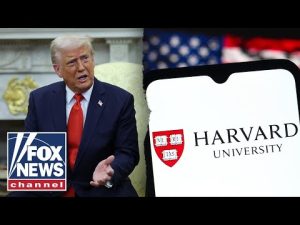In a world where the news cycle spins faster than a politician dodging a direct question, it seems Pete Hegseth has found himself once again at the center of a media storm. The media, ever eager to pounce, has turned its gaze onto Hegseth, questioning his role in the Pentagon and his alleged mishandling of sensitive information. As usual, the details are mired in layers of speculation and finger-pointing, but one thing is clear: they smell blood in the water.
From day one, the media has had it out for Hegseth. It’s almost as if they dusted off any personal controversies they could find from his past, ready to throw them onto the bonfire of current events. The latest controversy revolves around leaked communications, with accusations flying faster than a paper airplane in middle school. Apparently, some initial signal chats were leaked, yet somehow the focus shifted to Hegseth rather than those who orchestrated the leaks. It’s curious how often the real initiators of trouble seem to escape unscathed when there’s a more tempting target in their sights.
There’s an old saying about not shooting the messenger, but in this tale, it seems like any previous career with Fox News effectively paints a target straight on Hegseth’s back. His tenure there has flavored the narrative, with critics acting like his lack of a traditional Pentagon resume is somehow a crime against bureaucracy. Because heaven forbid someone different is allowed to bring fresh perspectives to military operations. But we all know how the press loves their headlines, and Hegseth, a non-D.C. insider, has handed them plenty of ammunition to keep their bylines busy.
However, beyond the curtain of media drama, there lies a more substantial issue. This isn’t just about Hegseth, the press, or a few sensationalist headlines—there’s a deeper ideological battle at play. While the media enjoys regaling with tales of dysfunction within the Pentagon, it conveniently overlooks the internal tug-of-war over America’s foreign policy. Surprisingly, there are those who favor a less aggressive approach, looking to avoid turning every international hiccup into a full-blown conflict. But, of course, what’s a juicy narrative of chaos without conveniently forgetting the substance it distracts from?
Some voices even hint at possible changes within the administration, suggesting that President Trump might be shopping around for replacements. The rumors are swirling, but let’s not forget Trump’s history of steadfastly standing by his circle when faced with a media assault. The administration’s distrust of liberal media narratives is well-documented, some say Trump might even favor staff more when the media turns against them. After all, this isn’t just about staffing issues but the ongoing culture war between the media and those who dare to rattle its status quo.
In the end, the real tragedy is that more time is spent flinging mud than focusing on real issues that affect national security and foreign policy. But leave it to the media to make mountains out of molehills and keep the public enthralled with melodrama. Whether Hegseth’s involvement warrants such attention remains a subject of debate, but if there’s one truth in all this, it’s that the spectacle will keep everyone speaking, and, maybe, that’s the point.







